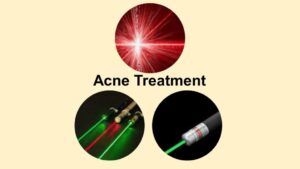
Acne Treatment
Acne is a skin condition that occurs when your hair follicles become plugged with oil and dead skin cells. It causes whiteheads, blackheads, or pimples. Acne is most common among teenagers, though it affects people of all ages. It commonly occurs during puberty, when the sebaceous glands activate, but it can occur at any age. It is not dangerous, but it can leave skin scars. Many people in the U.S. experience acne between the ages of 12 and 24 years.
Some facts about acne that it is a skin disease involving the oil glands at the base of hair follicles; It affects 3 in every 4 people aged 11 to 30 years; It is not dangerous, but it can leave skin scars; Treatment depends on how severe and persistent it is; Risk factors include genetics, the menstrual cycle, anxiety and stress, hot and humid climates, using oil-based makeup, and squeezing pimples.
Cause
Human skin has pores that connect to oil glands under the skin. Follicles connect the glands to the pores. Follicles are small sacs that produce and secrete liquid. The glands produce an oily liquid called sebum. Sebum carries dead skin cells through the follicles to the surface of the skin. A small hair grows through the follicle out of the skin. Pimples grow when these follicles get blocked, and oil builds up under the skin. Skin cells, sebum, and hair can clump together into a plug. This plug gets infected with bacteria, and swelling results. A pimple starts to develop when the plug begins to break down.
How dermatologists treat severe acne?
When a patient has severe acne, a dermatologist often recommends treating it with one of the following.
Antibiotic + medicine you apply to the acne: This is often the first treatment recommended for severe acne. Taking an antibiotic can reduce the redness and swelling of acne. The medicine you apply to your skin works on reducing bacteria and clogged pores. If this treatment fails to clear your skin, your dermatologist may switch your antibiotic or talk with you about isotretinoin.
Isotretinoin: This is a potent medicine that attacks all four causes of acne—bacteria, clogged pores, excess oil, and inflammation (redness and swelling). Due to possible side effects, you will need to carefully consider whether you want to take this medicine. If you decide to take isotretinoin, you must enroll in a monitoring program.
Birth control pill (females only): A birth control pill can be an effective part of an acne treatment plan. When treating severe acne, a birth control pill may be used along with an antibiotic or a medicine called spironolactone to get the acne under control.
No one needs to live with acne.
While acne can be stubborn, it’s not impossible to get clearing.
Laser treatment for acne scars aims to minimize the appearance of scars from old acne outbreaks. Laser treatment for acne scars focuses laser beam on the top layers of your skin to break up scar tissue. At the same time, the treatment encourages new, healthy skin cells to grow and replace the scar tissue. In some cases, medical grade peel is used for maximum effectiveness.
Which laser is best of acne?
Some common kinds of lasers used for acne scarring are erbium, Pico, YAG lasers, carbon dioxide (CO2) lasers, and pulsed-dye lasers. Each of these devices work in a specific way to target the type of scarring that you have.
So how do I get my acne treated?
Suggest scheduling your initial free consultation with our trained providers who have treated thousands of patients successfully. We will first take an image of your skin using our imaging technology to allow us to examine layers of your skin before we customize a package for you. Click here to book>>>


